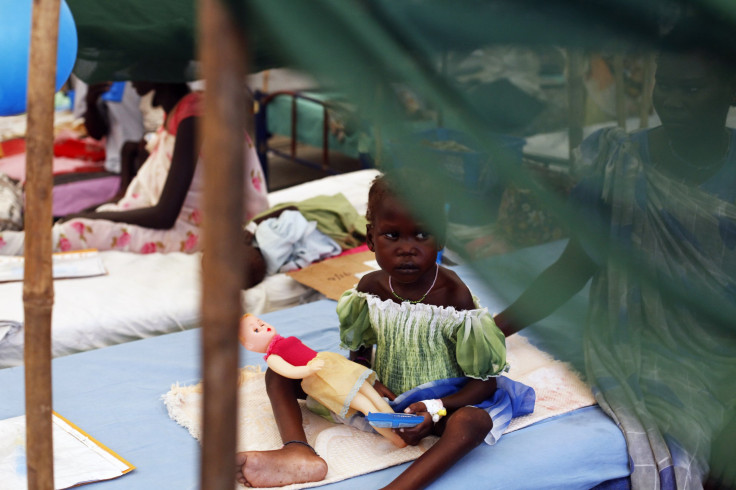South Sudan Famine: US To Send $180M In Food Aid Amid Civil War

Amid fear of widespread famine, the United States is sending $180 million in food aid to the people of South Sudan, which has been embroiled in a civil war since last year that has displaced more than a million people, National Security Adviser Susan Rice said Tuesday in a statement.
“Since the start of this crisis, the United States has provided the South Sudanese with more than $456 million in humanitarian aid. But the scale of the suffering and humanitarian need there is shocking, and the threat of famine is real, so much so that we are using this emergency funding authority for the first time since 2008,” Rice said. The funds are coming from a Department of Agriculture trust and the U.S. Agency for International Development, or USAID.
Rice blamed the suffering of the South Sudanese people on its president, Salva Kiir, and rebel leader Riek Machar.
“The people of South Sudan are suffering because of the inability of South Sudan’s leaders to put their people’s interests above their own,” Rice said. “President Salva Kiir and Riek Machar must immediately assume their responsibilities to the South Sudanese to prevent further needless suffering. It is more critical than ever that both sides end the violence and ensure the safety of humanitarian aid workers so that they can reach those most in need across South Sudan. The United States will continue to work for the peaceful resolution of the conflict.”
On Monday, U.S. Secretary of State John Kerry complained that deadlines for a peace agreement, which is being negotiated in Ethiopia, are continually being missed.
“The log-rolling and delay has to end,” Kerry said in a statement. “The government of South Sudan and the Sudan People’s Liberation Movement in opposition agreed to take no more than 60 days to form a transitional government of national unity. Regional leaders helped broker the agreement, but despite the Inter-Governmental Authority on Development mediation team’s best efforts, neither party engaged in peace talks seriously. Along with my troika colleagues from Norway and the United Kingdom, we condemn these failures.”
Kerry said it was “an outrage and an insult to the people of South Sudan” for there not to be a peace deal.
“Their leaders are letting them down again and again. Peace talks have been ongoing in Ethiopia for six months, while the people of South Sudan continue to suffer and the war persists,” he said. "Over a million people have been displaced due to the fighting and South Sudan now faces the worst food security crisis in the world with a real risk of famine.”
© Copyright IBTimes 2024. All rights reserved.












